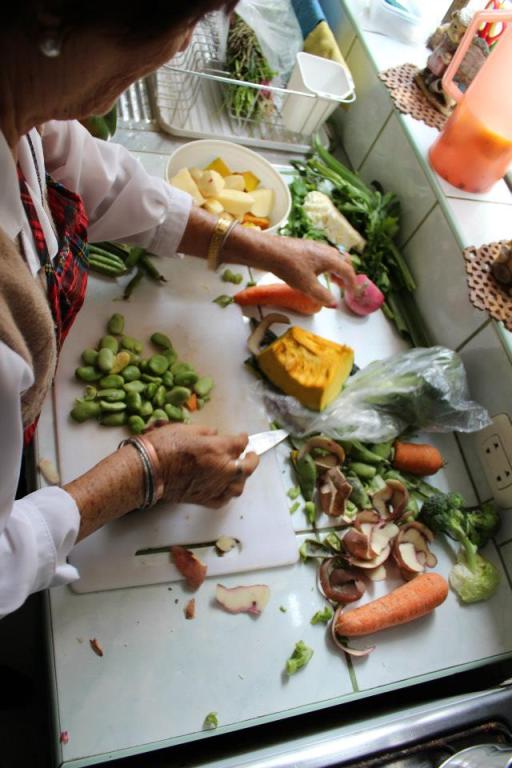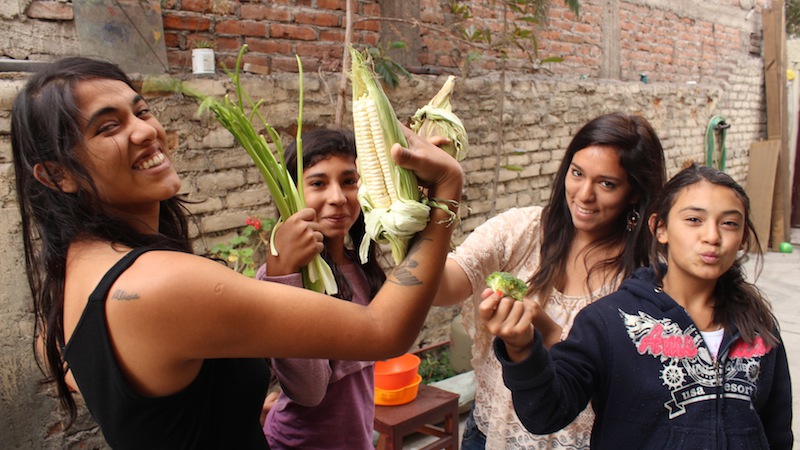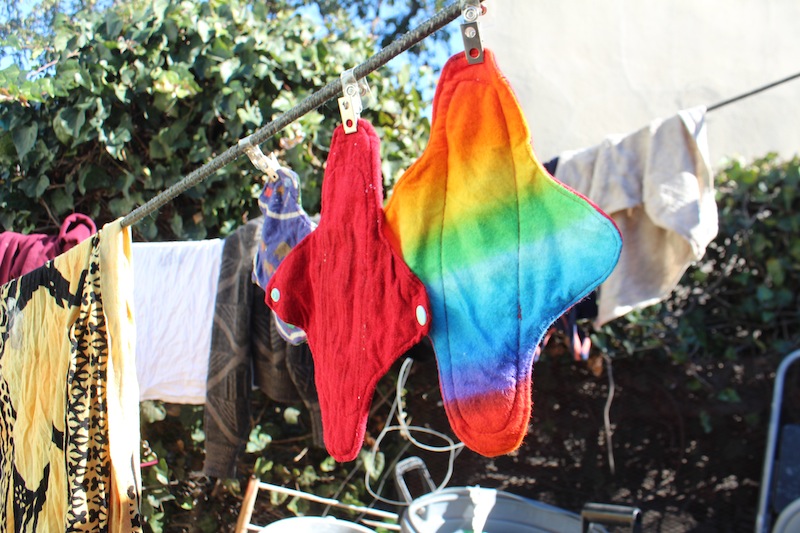
Reclaiming Abuelita Knowledge As A Brown Ecofeminista
When I was going to college in Berkeley I lived in this extremely bizarre vegan co-op that was filled with white people that were “into trees” and vegan food. They had this thing called “Naked Pizza Friday” where anyone who was naked got the first grabs on vegan pizza. So this co-op was definitely a weird experience for me. I saw too many naked white bodies and even learned about vegan butter. I have blurry memories of these times, but I remember there was either an info sheet taped on the wall of the co-op or a conversation with a white person that introduced me to “eco-friendly” mxnstrual products. Now, I have never been disgusted or ashamed of my blood. However, when I heard about “eco-friendly” alternatives to mxnstruation in this bizarre white space I got lots of mixed feelings. I guess most of the feelings could be summed up as anger. It has taken me five years since the incident to understand why I felt so annoyed and angry when white people told me about eco-friendly mxnstruating.
The thing is, I DO care about the environment but I cannot stand it when white people pretend they are all connected to the earth and refuse to understand that many of us — Migrant Brown People — come from backgrounds where “environmentalism” is not talked about because we grow up doing unintentional “green” things. For some reason mainstream culture has done a great job of erasing people of color’s legacy on anything “green” or “environmental.” Mainstream media falsely frames sustainable practices as practices spearheaded by white people. A very annoying example of this is permaculture, a “design system” that you can learn if you have thousands of dollars — mind you, a lot of the principles of permaculture are practiced by people of color worldwide, from reusing water to wash dishes and water plants to using food scraps to enrich soil for plants.
People of color that come from families that need to recycle and reuse to make ends meet have incredible amounts of knowledge. I know many folks that talk about sustainability in their communities and practice sustainable living, but our stories are not legitimized by books or newspaper articles nor are they studied in a Global Sustainability class. Acknowledging people of color’s legacy in the mainstream would undermine the classist, racist and xenophobic ideals that our society stands on. We pass down traditions and knowledge that are unintentionally green or sustainable. We do not call them “eco-friendly” practices, we just do them. I call this passed down knowledge, Abuelita Knowledge because so much of these “new age” practices are the ways in which my grandmas and elders live their lives .

Mi abuela cooking delicious vegetarian Peruvian food.
About three years ago I asked my Mama about how she caught her blood and experienced her moon. She told me about using rags, bleeding on old sheets, washing her moon rags by hand with her sisters and hanging them to dry in the sun. She told me that my grandma used to make her rue, anise and manzanilla tea to calm her womb aches and sometimes place a warm trapo on her lower abdomen. She also told me that the first time she used commercial pads was when she was 22 because her hometown in Peru did not get “modern” pads until the mid-80s.
Every day I feel like I have to reclaim and re-own practices that are usually considered white. I think that is probably the most annoying thing about being a Brown Peruvian Person. I have to constantly remember that healthy eating, biking, stretching, wearing second-hand clothing and even bleeding on a reusable pads are not white things. Colonization and displacement have created cultural amnesia. We are bombarded by advertisements, television shows, school books, religion and ultimately a ci$tem that makes us forgot that many of the practices that are sold to us as “modern” and “hip” have been practiced by our people/families for generations. It is painful to realize that some of these “new” practices have been sold to us in different packages. Reclaiming these practices is the process of working towards breaking down the appropriation of Abuelita Knowledge and feeling empowered to claim legacies. Reclaiming these practices is rerooting ourselves in our ancestral practices.

Real Food Power! With my Peruvian and Colombian cousins showing some real food love before cooking a delicious healthy meal for the family. Arequipa, Peru. 2013.
This patriarchal capitalist society is designed to keep us unhealthy. Specially all these white supremacist ideas that make people believe that conscious mooning is a white hippy thing, that giving birth to a baby under a tree is white, that gardening organically is white, that meditating is white. I really think that these false ideas create barriers to health that make many of us believe that these practices are so ridiculous and stupid so we end up doing the opposite of so called “white” things and end up hurting ourselves. We start believing that ancestral practices are not ours and we start seeing them as foreign. I refused to use any “eco-friendly” mxnstrual products for years because you know, that was such a white thing to do. I think there is this untold fear of becoming white for some Migrant Brown People, some of us are secretly scared of not being Brown enough.

Sun drying my moon pads
The process to having to deconstruct conceptions of health and reclaiming conscious moonstration is an enraging one. I constantly see my friends fighting to be able to be healthy and stay healthy, from weird infantilizing fabric used to make cloth pads to framing mxnstruation as a “woman-only” thing to lack of culturally relevant health information that includes herbs, sobadas and other traditional healing methods. There are plenty of health barriers that have been imposed on us by this $i$tem that is constantly framing sustainable and healthy living in white terms without taking into consideration the work that many of us and our families do everyday as accidental environmentalists. To me, charting my cycle, collecting my moon blood and refusing to take pain killers for womb pains are actions that make me feel real. Makes me feel part of a line of mxnstruating people that take care of our bodies organically and consciously. It is blood memory that makes me feel closer to my Grandmas and my Mama who tells me stories of rag washing in her parents’ home in Arequipa.
I can’t help but picture myself on a warm summer afternoon washing moon pads on the lavadero in my grandma’s backyard, next to my mom, maybe tossing some moon blood on my grandma’s plants and hanging the pads to dry on the warm Andean sun. Then going up to my grandma and complaining to her about womb pain just so that she pays attention to me and puts her wrinkly warm hands on my tummy and rubs it while saying love spells.
“Sana sana panzita de rana, si no sana ahora sanara manana.”
You see, for me, staying healthy in this unhealthy $i$tem means to constantly be (Re)claiming, (Re)creating, (Re)membering and (Re)imagining Abuelita Knowledge.